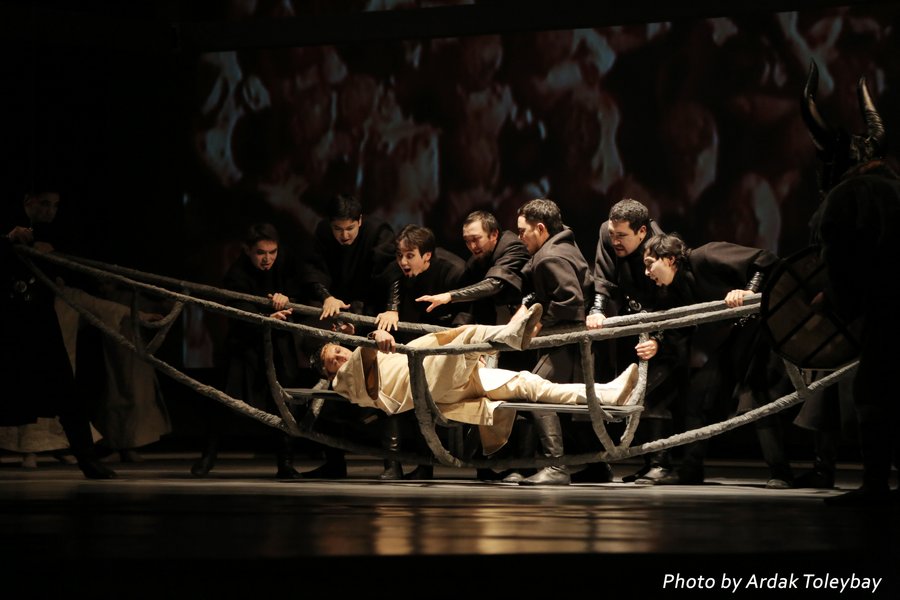AUDIENCE MEETINGS
AUDIENCE MEETINGS
Oh, Tengri,
Why, tell my why
did you make me this way?!
“The wise Korkyt first lived in a hidden corner of the world. One night, he had a dream about a few men digging a grave. When he asked them who they were digging the grave for, they replied that they were digging it for the wise Korkyt. When Korkyt woke up from his dream, he decided that he would run away from his death, so he fled to the other end of the world. There, he had the same dream, so he decided to move, this time to the centre of the world. This is how he came to the River Syr Darya, where he had the same dream again. He concluded that he was not to live on earth, so he took off his sheepskin coat, lay it on the river, sat down on it and lived this way for 100 years to come” (Imre Adorján)

As Babakumar Khynayat reveals, the original title of the play performed by the Kazakh State Drama Theatre is “Korkyt’s Grave.” The drama reminds Khynayat of the London scene of Imre Madách’s The Tragedy of Man, of the death of mankind. But like Madách, Iran- Gayip, the author of the play, also raises the question: where do we go from here? What chances do the coming generations have in life? The answer to these questions may lie in the following example: according to Kazakh traditions, Father Korkyt was the inventor of all stringed instruments, and when the Kazakh shamans play the cobza, their song is a prayer to their mentor, Father Korkyt, for help.
- In the first part of the event, expert Hungarian researchers (Ágnes Birtalan, István Sántha, László Koppány Csáji, and Kazakh historian Babakumar Khinayat) will discuss the common cultural heritage of the two kindred peoples, the Hungarians and the Kazakhs, and similar features of their mythical traditions.
- The second part will include a conversation with the artistic director of the theater, Sabit Abdakalykov, the author of the play, Iran-Gayip, and the leading actor, Dulyga Akmolda, about the birth of the production and cooperation among Lithuanian and Kazakh artists.
(04 March 2019)